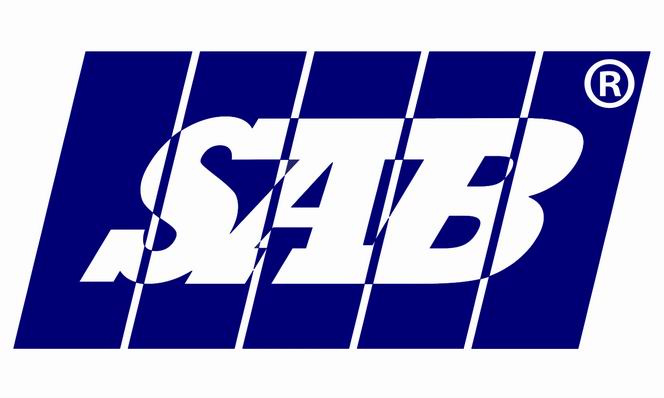Bituminous Membrane NEOFLEX A4200
APP Modified Bituminous Membrane
Polymer (APP) modified bituminous membrane, reinforced with non-woven polyester mat. The Polyester combines high tensile strength with an elongation above 40%. A high performance elastomeric waterproofing membrane which combines that ability to withstand high ambient temperature with the usual characteristics of an APP membrane of high flexibility at low temperature that makes it easy to apply at sub-zero temperature.
ADVANTAGES
- Cold flexibility
- Heat stability
- Thermal ageing resistance
- UV resistance
- Resistance to foot traffic
SURFACE FINISH
It is covered either with polyethylene film or sand at the back and comes in a variety of surface finishes; sand, polyethylene film, slated or aluminium. The slate can be natural grey, white, black or green or any other colour depending on stock availability.
THICKNESS, ROLL SIZE & PACKING
It is produced 4mm thick in rolls of 1 × 10 meters. The rolls are palletized and shrink wrapped.
SPECIAL FEATURES
- Positive vapour barrier
- Excellent resistance to atmospheric agents.
- High flexibility during application at sub-zero temperature with no physical strains
- High malleability making it entirely suitable for difficult basement and foundation works.
- High softening point allowing it to maintain shape stability at high temperatures.
- Withstands thermal shocks.
- Accommodates structural movements.
- Resistant to chemical attacks.
APPLICATION INSTRUCTIONS
The membrane must be unrolled and laid down on the area to which it is to be applied. Check the orientation carefully.
Adjacent rolls should then be laid, each overlapping the one next to it by 10cms on the side and 15 cms at the ends. Taking care not to change to orientation of each roll, reverse the process until each has been re-rolled. When laying the roll, the lower surface should be heated with a propane torch, using sweeping left to right movements. This will melt the lower surface to the membrane and allow it to stick to the substrate. On slated membranes you should either remove the special selvedge paper or on sand bottom rolls torch the special polypropylene selvedge. Continue this process for each subsequent roll, remembering that the overlaps must be 10cms for the edges and 15cms at the ends. When the process is complete, carry out an inspection to ensure total adhesion.
STORAGE & MATERIAL HANDLING
The rolls should always be stored vertically in a shaded area. Normally the pallets should not be stacked one over the other. However, if a wooded board is used in between, two pallets may be stacked one over the other.
Polymer (APP) modified bituminous membrane, reinforced with non-woven polyester mat. The Polyester combines high tensile strength with an elongation above 40%. A high performance elastomeric waterproofing membrane which combines that ability to withstand high ambient temperature with the usual characteristics of an APP membrane of high flexibility at low temperature that makes it easy to apply at sub-zero temperature.
ADVANTAGES
- Cold flexibility
- Heat stability
- Thermal ageing resistance
- UV resistance
- Resistance to foot traffic
SURFACE FINISH
It is covered either with polyethylene film or sand at the back and comes in a variety of surface finishes; sand, polyethylene film, slated or aluminium. The slate can be natural grey, white, black or green or any other colour depending on stock availability.
THICKNESS, ROLL SIZE & PACKING
It is produced 4mm thick in rolls of 1 × 10 meters. The rolls are palletized and shrink wrapped.
SPECIAL FEATURES
- Positive vapour barrier
- Excellent resistance to atmospheric agents.
- High flexibility during application at sub-zero temperature with no physical strains
- High malleability making it entirely suitable for difficult basement and foundation works.
- High softening point allowing it to maintain shape stability at high temperatures.
- Withstands thermal shocks.
- Accommodates structural movements.
- Resistant to chemical attacks.
APPLICATION INSTRUCTIONS
The membrane must be unrolled and laid down on the area to which it is to be applied. Check the orientation carefully.
Adjacent rolls should then be laid, each overlapping the one next to it by 10cms on the side and 15 cms at the ends. Taking care not to change to orientation of each roll, reverse the process until each has been re-rolled. When laying the roll, the lower surface should be heated with a propane torch, using sweeping left to right movements. This will melt the lower surface to the membrane and allow it to stick to the substrate. On slated membranes you should either remove the special selvedge paper or on sand bottom rolls torch the special polypropylene selvedge. Continue this process for each subsequent roll, remembering that the overlaps must be 10cms for the edges and 15cms at the ends. When the process is complete, carry out an inspection to ensure total adhesion.
STORAGE & MATERIAL HANDLING
The rolls should always be stored vertically in a shaded area. Normally the pallets should not be stacked one over the other. However, if a wooded board is used in between, two pallets may be stacked one over the other.
Views
- 2742 Total Views
- 2064 Website Views
- 678 Embeded Views
Actions
- Social Shares
- 1
- 0
- 0 Comments
Share count
- 0 Facebook
- 0 Twitter
- 0 LinkedIn
Embeds 3
- 16 www.sab-us.com
- 14 161.97.92.48
- 3 161.97.92.48:8011
-
LAVATEX 2000
13346 Views . -
الوقاية من الحرارة والرطوبة العزل المائي
8168 Views . -
DCL Product Conformity
7903 Views . -
Weber Product List
7794 Views . -
-
Wurth sealants & Adhesives
7319 Views . -
-
Optimization Methodology To Implement Thermal
7155 Views . -
-
AWAZEL PU 250 White
6726 Views . -
VELOSIT® TDS-PC-221-EN_2319 (Plug Cement)
6590 Views . -
طبقات نظام العزل كومبو رووف
6329 Views . -
-
-
-
-
Approved Materials (TDS) for Sabtron Combo System
5940 Views . -
Fosroc Conbextra EPGP
5820 Views . -
Dr. Fixit PVA BOND.
5719 Views . -






























